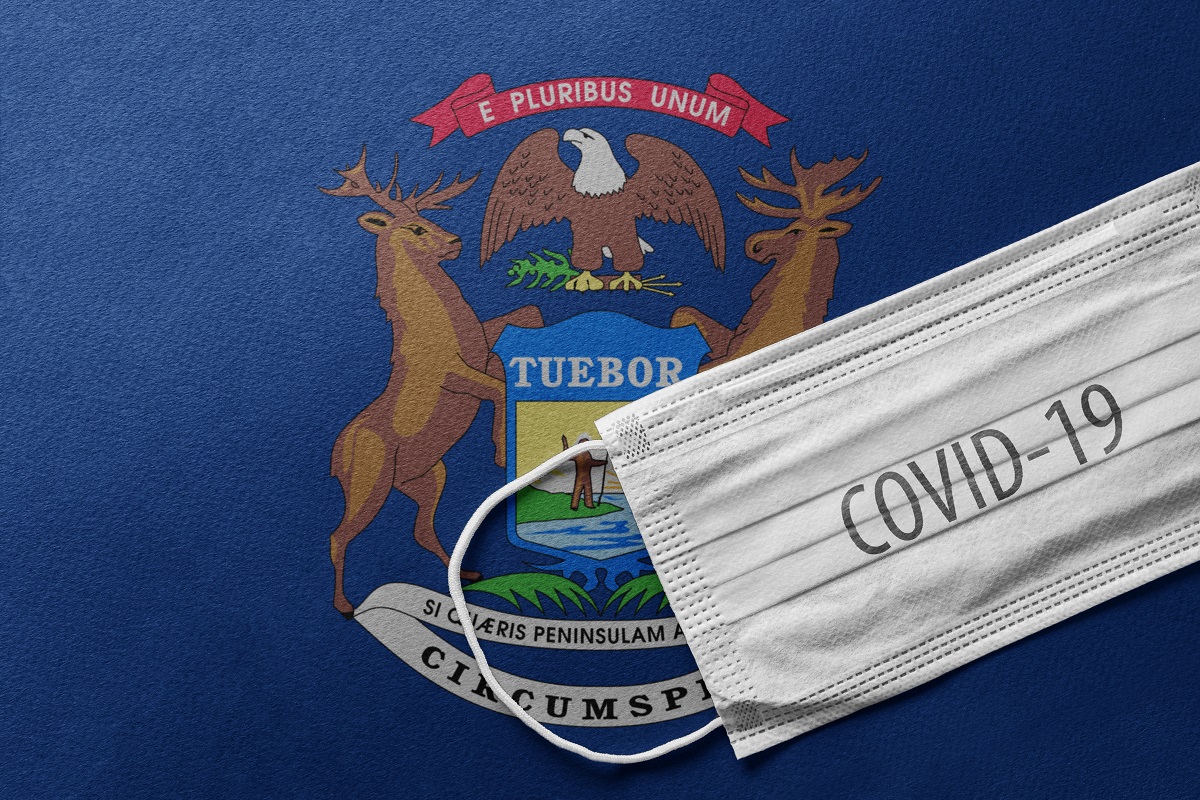The Michigan Occupational Safety and Health Administration (MIOSHA) began a rulemaking to establish a permanent COVID-19 standard. MIOSHA submitted a Request for Rulemaking to the Michigan Office of Administrative Hearings and Rules, initiating the process of formal rulemaking to extend the requirements of the agency’s COVID-19 emergency temporary standard (ETS).
Michigan last October issued emergency regulations for COVID-19 exposures in the workplace, becoming the second state, after Virginia, to issue emergency COVID-19 regulations. Virginia now has a permanent COVID-19 standard. Michigan’s ETS expires on April 14, but MIOSHA can extend the emergency rules for 6 months while it develops a permanent standard.
MIOSHA’s emergency COVID-19 regulations include a requirement that employers provide and support remote work, when feasible. The emergency rule in Michigan also includes employer requirements for preparedness and response plans, infection prevention measures, health surveillance, workplace controls, personal protective equipment (PPE), recordkeeping, and training.
Employers must perform exposure assessments for employee tasks and workplace procedures, assigning workers’ tasks and workplace procedures to lower-, medium-, high-, or very high-exposure-risk categories. Employers also must develop, implement, and maintain a plan of measures to control workers’ risks.
The Michigan ETS covers all employers but also includes additional requirements for industries such as casinos, in-home and personal care services, health care, and meat and poultry processing.
MIOSHA has maintained an active enforcement effort and has cited a wide swath of businesses that include amusement centers, automotive service centers, and restaurants, as well as schools. The construction industry has been far from exempt from MIOSHA’s COVID-19 enforcement efforts; the agency has cited electrical contractors, roofers, and asphalt pavers. The state also has conducted a retail industry emphasis program.
California, Michigan, Oregon, and Virginia all established emergency COVID-19 rules last year. Virginia’s permanent COVID-19 regulation remains in force until a state standards-setting board revokes it. Like Michigan, Oregon also began the rulemaking process this year for a permanent COVID-19 standard.
The federal Occupational Safety and Health Administration (OSHA) has no permanent or emergency COVID-19 standard, but on January 21, President Joe Biden issued Executive Orders directing OSHA to consider establishing a COVID-19 ETS by March 15. The agency has not issued an ETS but has issued updated employer guidance and a new enforcement policy, emphasizing on-site inspections, when feasible.
On March 12, OSHA launched a National Emphasis Program (NEP), focusing enforcement on companies at which large numbers of workers face serious risk of COVID-19 infections. The NEP also prioritized enforcement of whistleblower protections for workers who face retaliation for reporting unsafe or unhealthy workplace conditions.
The NEP’s primary enforcement targets included ambulance and home healthcare services; correctional facilities; department stores, groceries, supermarkets, and restaurants; healthcare and long-term care facilities; meatpacking and poultry processing facilities; and warehouses and storage facilities.
However, the NEP also includes a range of employers in industries in the construction, critical manufacturing, energy, food and agriculture, and transportation and logistics sectors as its secondary, non-healthcare targets.

